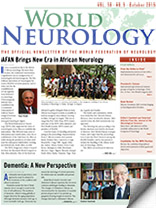One new officer post — of treasurer — and one elected trustee post are to be filled at the Council of Delegates Annual General Meeting in November during the World Congress of Neurology in Santiago, Chile. The Nominating Committee has recommended the following candidates to the membership:
Recommended candidates
Treasurer
Prof. Richard Stark
(Australia)
Prof. Andreas Steck
(Switzerland)
Elected Trustee
Prof. Morris Freedman (Canada)
Prof. Steven Lewis
(United States)
Additional Candidate for Elected Trustee
Nominated under Article 6.3 of the WFN constitution
Dr. Daniel Truong
(United States)
Candidates’ biographical details and statements of their goals and objectives for the organization are below.
Candidate Statement for WFN Treasurer
Richard Stark, MD
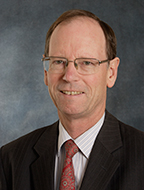
Richard Stark
I am honored to be considered as a candidate for treasurer of the World Federation of Neurology (WFN). I am familiar with the dedication of the executive and staff through my involvement in past World Congresses of Neurology (WCN) from 2005 to 2015. I have been a member of the Tournament Committee and have seen firsthand the culture of generous willingness to donate time and effort in the preparation of this aspect of the conference, as well as the teaching and scientific programs. I know from these past experiences that I can work well with current members of the executive.
My nomination made me consider the role of WFN, and note its mission statement. This states “the mission of the WFN, as a UK registered charity, is to foster quality neurology and brain health worldwide, a goal we seek to achieve by promoting global neurological education and training, with the emphasis placed firmly on under-resourced parts of the world.” I strongly support these aims.
The treasurer of an organization such as WFN carries a heavy burden of responsibility. There are numerous stakeholders, including all of the member societies, each of which will have their own view as to the priorities the WFN should pursue. The funds of WFN accrue as the result of efforts of all of its members, and all expect the funds to be used appropriately and efficiently. It is self-evident that the processes for dealing with the funds must be transparent and equitable.
Every edition of World Neurology demonstrates the wide range of the WFN’s efforts to enhance neurological knowledge and improve neurological services to patients around the world. Initiatives of this type require funding so that inevitably the choice of projects undertaken must be approached prudently.
Much of the WFN’s income derives from its scientific meetings, and the financial successes of these depend in large part on the extent of support from pharmaceutical and related industries. The enthusiasm of pharmaceutical companies depends, in turn, on the nature of their products and the stage of commercial development of each product. These factors are, of course, outside the control of the WFN.
The management of the WFN’s finances, therefore, require an astute and flexible approach aimed at maximizing income, using income as available to fund projects around the world and efficient administration. Prudence requires that projected income streams be realistic and take into account uncertainties related to pharmaceutical industry support.
As treasurer of the Sydney 2005 World Congress of Neurology (which was a huge financial success and has contributed to WFN’s capacity to fund ongoing projects) and of the Australian Association of Neurologists (1997-2003) during a period of its growth, I am well aware of the challenges facing an organization such as the WFN and of the need for careful and prudent management of its finances. These positions naturally involved efforts to maximize income from industry, as well as other sources, so I am familiar with what is required to achieve success in these areas. The experience of being treasurer of WCN 2005 also highlighted the need to be acutely aware of the potential effects of fluctuations in exchange rates and other consequences of the globalization of economies. WCN 2005 took place at a time of substantial exchange rate volatility, and the measures that had been put in place to minimize adverse impacts of this volatility contributed to the financial success of the conference.
The WFN has a strong tradition of efficient use of funds. This, of course, contrasts with the situation in some other high profile international organizations and relies on the generous donation of time from the executive, as well as the hard work of administrative staff. This efficiency must continue.
If elected, I undertake to work diligently with the executive to ensure that the financial management of the WFN allows it to pursue its aims and objectives as effectively as possible.
Candidate Statement for WFN Treasurer
Andreas Steck, MD
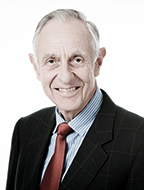
Andreas Steck
I am a professor emeritus of neurology and former head of the department of neurology, University of Basel, Switzerland. I have been a member of the Executive Committee of the European Neurological Society (ENS) since the foundation of the society and was also president of the ENS. I was in charge of its finances and served as treasurer. I chaired the Evaluation Committee of the ENS fellowship program and was a member of the Examination Committee of the European Board of Neurology. My research interests have centered on neuroimmunological aspects of neurological diseases, such as multiple sclerosis, inflammatory neuropathies and paraneoplastic syndromes.
I am currently the president of the Scientific Council of the International Foundation for Research in Paraplegia in Geneva and chair the Neuromuscular Research Association Basel. I am a member of several international societies, such as the Neuromuscular Research Group of the WFN and a faculty member of F-1000. I am a past editor of the Swiss Archives of Neurology and Psychiatry, a former president of the Swiss Neurological Society and a regular reviewer of scientific journals. I am a fellow of the American Neurological Association and a fellow of the European Academy of Neurology.
Large international organizations, such as the WFN, need a strong management structure to sustain the challenging demands in a rapid moving world. This has led to the decision to separate the post of secretary-treasurer general into two, one of secretary general and the other of treasurer. In high insight, this is a natural evolution toward more transparency, and most scientific societies today follow this model. The newly created function of treasurer is an important position of trust and responsibility situated between the president, secretary general, trustees and member societies.
Over the years, the WFN has experienced increased operating expenses, in particular through its worldwide initiatives, grants and spending on member activities, which help to realize its main goals as a global scientific society. In this respect, an important role of the treasurer is to keep the WFN on a sound and sustainable financial basis, while allowing the WFN to meet its growing support needs by encouraging new projects and co-sponsorships with other institutions or scientific societies. While the WFN is by essence a global player, there are an increasing number of large international neurological societies taking regional and supranational coordinating roles. An example of this is the newly created European Neurological Society (EAN). The two existing European neurological societies, the European Neurological Society (ENS) and the European Federation of Neurological Societies (EFNS), have now joined forces to build the EAN. The newly established organization has inherited funds of the two previous ones. This puts it in an excellent position to take on new challenges, such as a recently initiated partnership program across the Mediterranean to involve associate member countries. The newly formed Pan American Federation of Neurological Societies (PAFNS) is representing neurology in Latin America a region in full development, where the 22nd World Congress of Neurology (WCN) is taking place in Santiago, Chile. The 23rd WCN will be organized by the Asian Oceanian Association of Neurologists and take place in Kyoto, Japan.
The WFN should take advantage of the unique opportunity to collaborate with these international societies to advance our field. The challenge for the WFN in the coming years will be to coordinate its global involvement by interacting not only with national, but also new international scientific organizations. In order to maintain a sustainable growth, the cooperation’s projects should be well planned to avoid overlapping programs. A better integration and coordination of the WFN applied research groups would help foster quality neurology worldwide. Efforts should be made to streamline the budgeting process and assure that management accounting allows for an ongoing monitoring of income and expenditures.
The sources of finances for the WFN include membership dues and income from congresses and publications. Moving the World Congress of Neurology from a four-year to a two-year cycle has brought in more money. Going to a one-year cycle of meetings would allow not only for continuity in organization and strengthening of corporate identity, but also would further increase income, a welcome move in a time of shrinking resources. Engaging with partners to share costs should bring additional sources of revenue.
As a long-standing member of the Executive Committee of the ENS, where I was in charge of the finances, I bring the needed managerial experience. I am convinced that I can fulfill this important function of treasurer to the satisfaction of the WFN and its members.
Candidate Statement for Elected WFN Trustee
Morris Freedman, MD
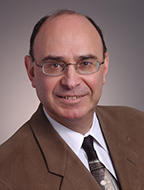
Morris Freedman
I have had the privilege to serve as Canadian delegate to the World Fedeartion of Neurology (WFN) since 2007, as a member of the WFN Education Committee since 2010 and as co-chair of the eLearning Task Force of the Education Committee, alongside Prof. Riadh Gouider from Tunisia. I am also honored that the Canadian Neurological Society has nominated me for the important position of WFN trustee.
Background and Achievements
By way of background, I am chair of the International Development Committee of the Canadian Neurological Sciences Federation, and I have served as president of the Canadian Neurological Society, Canadian Congress of Neurological Sciences (now Canadian Neurological Sciences Federation) and Federation of National Specialty Societies of Canada.
At the hospital level, I am head of neurology, executive medical director of the Centre for Memory and Neurotherapeutics, and director of the Sam and Ida Ross Memory Clinic at Baycrest Health Sciences. At the university level, I am a professor in the Division of Neurology, department of medicine, and director of the Behavioral Neurology Section, Division of Neurology, University of Toronto.
My clinical focus is behavioural neurology. I am also a scientist at the Rotman Research Institute of Baycrest Centre. My research is aimed at both improving our understanding of the mechanisms underlying cognitive impairment due to frontotemporal dementia and Alzheimer’s disease and development of cognitive test procedures. For example, my colleagues and I have contributed to the use of clock drawing as a bedside cognitive assessment tool.
I have taken an active international leadership role in education. Since 2005, I have focused on eLearning using videoconferencing as an electronic medium to bring together health care professionals from across the globe within a virtual classroom. This has been done within the context of international videoconference rounds in behavioral neurology. The goal is to develop greater international communication and links in behavioral neurology, and to transfer knowledge at the basic science and clinical levels internationally through joint educational programs. American, Canadian, Cuban, Israeli, Jordanian, Russian, Saudi Arabian, South African, Spanish and Swiss (World Health Organization) hospitals have participated. The audiences are multidisciplinary and include neurologists, psychiatrists, geriatricians, family physicians, nurses, social workers, occupational therapists and psychologists, as well as trainees in these disciplines. I was awarded the prestigious Colin Wolf Award from the Faculty of Medicine, University of Toronto, for this initiative.
An important development that was modeled on the international behavioral neurology videoconference rounds was the formation of an international neurology resident initiative in 2008, i.e., the Neurology International Residents Videoconference and Exchange (NIRVE), which promotes international collaboration among neurology residents. Participating sites have included Brazil, Canada, Chile, Ethiopia, France, Jordan, Nigeria and Russia. In addition to the rounds, NIRVE has led to resident exchange visits between Russia and Canada.
More recently, I have collaborated with Prof. Riadh Gouider to create a new series of international videoconference rounds in behavioral neurology involving Africa and Canada, which was supported by a WFN grant awarded during Dr. Vladimir Hachinski’s term as WFN president.
Goals
My goal as WFN trustee is highly focused and directly related to the mission of the WFN. This is to promote “global neurological education and training with the emphasis placed firmly on under-resourced parts of the world.” I hope to achieve this goal through innovative eLearning programs, which will include a significant expansion of our network of international sites for video conference rounds that target neurologists, allied health care professionals and trainees in neurology and related disciplines. The focus will be expanded from our highly successful behavioral neurology series to include a broad spectrum of areas within neurology with the opportunity of adaptation of new technologies. The ongoing programming series will involve both developing and developed countries so that knowledge can be transferred from one to the other in both directions.
I recognize the financial challenges facing under-resourced parts of the world, and the barriers that this poses for successful knowledge transfer through eLearning. However, in keeping with the mission of the WFN to promote global neurological education and training in these regions, I will apply all the resources at my disposal to help fulfill this mission with full emphasis on under-resourced regions.
I have a vision, a clear sense of direction and the focus to facilitate knowledge transfer for enhancing brain health across the world, especially where it is needed the most. Those who know me say that I am an excellent team player and organizer, qualities that are essential for success of the outlined goals. This success will require extensive collaboration and coordination involving many people with diverse needs, across many countries, to promote the WFN’s mission in global neurological education and training.
Candidate Statement for Elected WFN Trustee
Steven L. Lewis, MD
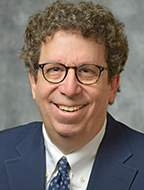
Steven L. Lewis
It would be an honor and a great privilege to be elected by the delegates as a trustee of the World Federation of Neurology (WFN). In support of my candidacy, I will begin this statement by providing some biographical information about my qualifications and experiences, which have led to my current involvement with this critically important organization.
I am currently professor of neurological sciences at Rush University Medical Center in Chicago, where I also serve as associate chairman, head of the Section of General Neurology and director of the neurology residency training program. My undergraduate education was at Yale University, where I received my degree in molecular biophysics and biochemistry. I received my medical education at Stanford University School of Medicine, and I performed my medical internship and neurology residency at the University of Chicago.
My national activities in neurology include my current chairmanship of the Neurology Residency Review Committee of the Accreditation Council for Graduate Medical Education, the committee that oversees training requirements and makes accreditation decisions regarding all neurology residency training programs in the U.S. I also recently chaired the Neurology Milestones Committee that developed the training milestones for all U.S. neurology residency trainees.
I have been highly involved with the American Academy of Neurology (AAN) for many years, including being current chair of the AAN Examination Subcommittee and section co-editor for continuing medical education (CME) for Neurology. I was vice-chair of the AAN Education Committee, and I chaired the AB Baker Section of Neurologic Educators. Three years ago, I had the privilege of being appointed by the AAN as editor-in-chief of Continuum: Lifelong Learning in Neurology, the AAN’s official CME journal.
Fortuitously for me, my work as editor-in-chief of Continuum also has led to my entry into significant involvement with the WFN and its support of global neurologic education. A joint program of the AAN and the WFN provides Continuum to 45 neurological societies whose Continuum user groups include thousands of participants worldwide who would otherwise be unable to access this important educational resource. This program, supported by a generous donation from the AAN and its publisher, Wolters Kluwer of 400 print copies of each issue as well as free online access for every participant, has been extremely highly received, and Continuum has served as a critically important educational tool for neurologists in training and in practice worldwide.
Two years ago, I had the privilege of being appointed as chair of the WFN Education Committee, allowing me to expand my involvement further beyond Continuum into the many other global educational efforts of the WFN, including growth of the WFN teaching centers, the awarding of WFN traveling fellowships and other endeavors. Most recently, Dr. Wolfgang Grisold (WFN secretary treasurer-general) and I have begun the first steps in development of a global educational curriculum for neurological training, to be developed with the assistance and input of the members of the WFN Education Committee. We feel that the WFN is in a unique position to develop such a curriculum to enhance neurological training worldwide.
One year ago, I was asked to serve as a WFN co-opted trustee, a position that has given me the opportunity to be even more highly involved in this important organization. I especially feel privileged to have been able to work closely with and learn from such esteemed mentors as Dr. Raad Shakir, president; Dr. William Carroll, first vice-president; Dr. Wolfgang Grisold, secretary treasurer-general; and Dr. Riadh Gouider and Dr. Amadou Gallo Diop. Their knowledge and experience in global neurology, and their combined histories with and institutional knowledge of the WFN, have been invaluable in my personal development to become an effective member of this organization.
In my roles and experiences with the WFN thus far, coupled with my communication with neurologists globally as Continuum editor-in-chief, I have been impressed by the remarkable similarities of the needs of neurologists worldwide, while also being keenly aware of the important differences in available resources and in access to care. The WFN should continue to play in integral role in enhancing access to quality neurologic education and training and to foster neurological health, including via continued partnerships with national neurologic organizations to access publications and educational programs (such as the partnership with the AAN for Continuum); continued involvement with the World Health Organization; an increased number of partnerships to provide regional teaching centers for neurologic training (such as is now in place in Rabat and Cairo, and currently being developed in Cape Town and Dakar) and department visits for brief subspecialty training experiences (as currently in place in Turkey, Austria and Norway); increased recognition of the availability of travel stipends and research grants to provide as many individuals as possible with access to these important (and sometimes life-changing) opportunities; and continued development of global initiatives, such as the development of a global educational curriculum. The WFN also can continue to increase its visibility to individual members of all neurologic societies, which will further our constituents’ access to our initiatives.
My background and experience as a neurological educator, editor and general clinical neurologist, I feel, provides a unique set of qualifications to help continue and even further enhance the role of the WFN and its 117 professional neurological society members to promote neurologic education and training with the goal to improve global neurological health. I would be honored and privileged to become an elected trustee of the WFN and to serve its members faithfully.
Candidate Statement for WFN Elected Trustee
Daniel Truong, MD
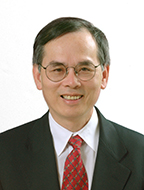 The national neurology societies of Bulgaria, China, Germany, Hungary, Kazakhstan, Kuwait, Mexico, Pakistan, Rumania, Saudi Arabian, Slovenia, the United States and Vietnam have honored me by nominating me for the trustee position.
The national neurology societies of Bulgaria, China, Germany, Hungary, Kazakhstan, Kuwait, Mexico, Pakistan, Rumania, Saudi Arabian, Slovenia, the United States and Vietnam have honored me by nominating me for the trustee position.
I was born in North Vietnam and moved with my family to South Vietnam in 1955 as a result of the war. I was one of the first Vietnamese to come to Germany in 1967 to study medicine at the University of Freiburg. I specialized in neurology and psychiatry. Marriage brought me to the U.S. in 1982, where I continued my training in neurology, first with a residency at the Medical University of South Carolina and later with a fellowship at Columbia University and London’s National Hospital for Nervous Disease.
My journey with the World Federation of Neurology (WFN) began in 2002, when I was given the honor to serve as a member of the Publication Committee. I was entrusted with the task of improving upon World Neurology. At the time, the newsletter was printed in India and mailed to subscribers worldwide. It arrived six months later by regular mail due to the cost of airmail. To reduce costs and expedite circulation, I proposed the transition to an Internet-based newsletter with regional interests. This proposal was later implemented as the current World Neurology.
My association with the WFN gave me the opportunity and cover to safely develop educational programs for Vietnam, as Vietnam had just begun opening its doors to the West. I implemented the format of the International Neurology Forum, consisting of a short course focused on one topic lasting one to two days. This format was the product of repeated observations that physicians from developing countries did not demonstrate high retention of new techniques learned from broad, lengthy meetings. However, when trained collectively in a large group in their own countries, there was a much higher chance that their practice patterns would change. I organized this format in subsequent forums in developing countries, such as Mongolia, Indonesia, Uzbekistan and Kazakhstan.
Over the years, I also have served on the Fundraising Committee, Membership Committee, Education Committee and Editorial Boards of World Neurology and the Journal of Neurological Sciences. I firmly believe that the furthering of scientific medicine requires a global effort. I have joined with my other three colleagues to edit a textbook, International Neurology, with the contributions from more than 200 neurologists from 80 countries around the world.
Reasons for Candidacy
As the WFN continues its endeavor to foster quality neurology and brain health worldwide, it serves as the bridge connecting different national neurology societies together. Its collective knowledge and strong moral standing lend the support to different national neurology societies to become a professional society with its own standing and as a pillar of democracy in their countries. I believe that I will be able to assist WFN to promote and sponsor initiatives that can leverage growth in neurology in regions of need, such as Africa, Central Asia, parts of Eastern Europe and Southeast Asia. Toward this goal, I believe that the WFN communications processes can be further improved to push for low-cost education in developing countries.
Goals
- To protect and grow the visibility of the WFN brand;
- To continue to modernize WFN communication and processes;
- To reach out and partner with other similarly aligned interests to assist the WFN in achieving its goals; and
- To assist in developing education programs worldwide.
Personal Qualities and Experience
The role of trustee requires a balance of experience, energy and teamwork. I believe I will contribute effectively to the stable growth of the WFN, the fulfillment of its mission and the achievement of the stated goals. Listed are some of the positions that I have held, or currently occupy, supporting my candidacy:
- Clinical professor, neurology, University of California, Riverside
- Chair, Education Committee, International Association for Parkinsonism and Related Disorders
- Member, Education Committee, WFN (2013- present)
- Member, Publication and Website Committee, WFN (2002-2012)
- Member, Fundraising Committee, WFN (2005-2009)
- Member, Membership Committee, WFN (2005-2007 and 2012-2013)
- Member, Research Committee on Parkinson’s Disease, WFN, (2004- 2010).
- Member, Membership Committee, WFN (2009-2013)
- Member, Lawrence C. McHenry Award Subcommittee, American Academy of Neurology (2007-2011)
- Member, International Subcommittee, American Academy of Neurology (2013-2015)
- Member, Congress Fundraising Committee, International Association for Parkinsonism and Related Disorders (2013-2015)
- Member, Liaison/Public Relations Committee, Movement Disorder Society (2006-2010)
- Member, Strategic Planning Committee, Movement Disorder Society (2014-2015)
- Member, International Committee, American Academy of Neurology (1995-1997)
- Ad Hoc reviewer, American Academy of Neurology (2007-2008)
- Section editor, Journal of Neurological Sciences (2013-present)
- Section editor, Journal of Neural Transmission (2008-present)
- Editorial board, Journal of Neural Transmission (2006-2008)
- Editorial board, Journal of Parkinsonism and Related Disorders (2005-2013)
- Editorial board, Journal of Neurological Sciences (2006-2013)
- Editorial board, Future Neurology (2007-present)
- Editorial board, World Neurology (2003- 2013)
- Section editor, Neurology International (2009-present)
- Editorial board, Romania Journal of Neurology (2013-present)
